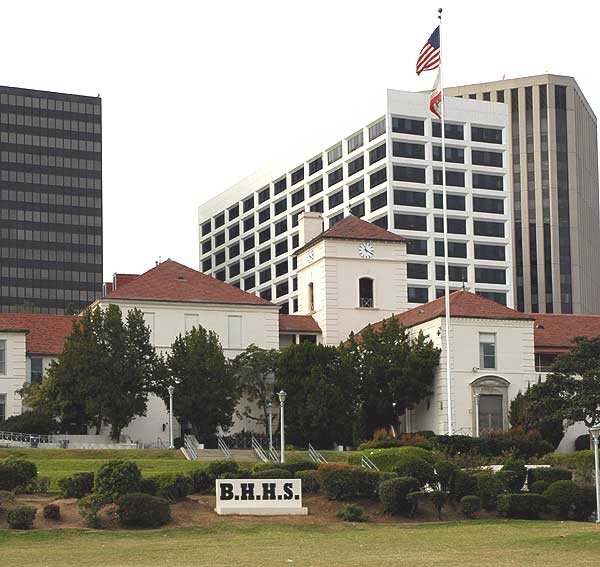Topic: Couldn't be so...
Perspective: Making Much of Little, Perhaps
Wednesday, January 4th, midweek, the national dialog was filled with the voices of those trying to figure out just what was going on. This took place on several fronts. The most immediate was discussion of how the media manage to collectively get a major story completely wrong, with some effort to put that story into a larger context, trying to connect it, somehow or other, to the big story of the week, the one of the lobbyist Jack Abramoff pleading guilty to multiple crimes and, in return for reduced sentences, revealing payoffs to congressmen that will end the career of those congressmen, and pretty much expose how the Republican Party actually works as an arm of special interests with no particular interest in "the people's business," as they say. (The Democrats work this way too, or have in the past, but they now have no power, control nothing, and are generally irrelevant - in fact, one columnist, Howard Fineman, here suggests that the Republicans are in such deep trouble we may see a third party arise, making no mention of the Democrats at all. That they might do well now doesn't seem to occur to him at all.) The less immediate puzzling over things regards, of course, the NSA "spying on Americas outside the clear law about that." Mid-afternoon, Chris Matthews on his MSNBC talk show, Hardball, said he had been out for a few days when this all broke and was amazed the story was still going strong - but then he has been trying hard to say this is not a partisan story, that Jack Abramoff is one bad apple (like Duke Cunningham) and most every congressman is really honest. He says this perhaps because he himself personally helped Jack Abramoff raise money for a sham charity (one percent of donations go to any charity work.) But it's not going away, and now its seems a CNN reporter, whose husband worked on the John Kerry campaign staff, may have been a target - all of her telephone conversations and those of her husband since 2001 may have been recorded by the NSA. That throws a new light on the last presidential election.
So let's get to it.
The story that was mishandled was the mine disaster - "Sago, West Virginia, Wednesday, January 4, 2006 - Great joy turned suddenly to deep sorrow Wednesday morning when stunned family members were told that 12 of the 13 miners trapped 13,000 feet into a mountainside since early Monday were dead rather than alive, as they, and the world, had been told hours earlier."
Out here on the west coast those of us who crashed for some sleep just before midnight saw the late news - a miracle, all but one of the miners found alive - Anderson Cooper doing his earnest but sympathetic interviews on CNN, waiting for the miners to stumble or be carried out, thumbs up and all that, and on MSNBC the odd Rita Crosby with her even odder voice gushing about the wonder of it all. When dawn came out here, it just wasn't so. All but one of the miners was dead. The Los Angeles Times on the doorstep got the story right. The papers on the east coast, with earlier deadlines, got caught - the Boston Globe had to dump 30,000 copies and reprint with the real story.
What happened? Well, CNN got this explanation from Ben Hatfield (not McCoy), the head of the mining company -
Oops."What happened is that through stray cell phone conversations it appears this miscommunication from the rescue team underground to the command center was picked up by various people," Hatfield said. "Simply overheard conversation was relayed through cell phone communications without our ever having made a release. International Coal Group never made a release about all 12 of the miners being alive and well."
And this was the press scandal of the week. There was a lot of scrambling to explain what when wrong, best summarized here by Greg Mitchell of Editor and Publisher -
Yes, it was "Dewey Defeats Truman" all over again. Who to blame - officials, including the governor, for misleading reporters?In one of the most disturbing media performances of its kind in recent years, TV news and many newspapers carried the tragically wrong news late Tuesday and early Wednesday that 12 of 13 trapped coal miners in West Virginia had been found alive and safe. Hours later they had to reverse course.
For hours, starting just before midnight, newspaper reporters and anchors such as MSNBC's Rita Cosby interviewed euphoric loved ones and helped spread the news about the miracle rescue. Newspaper Web sites announced the happy news and many put it into print for Wednesday at deadline. "They're Alive!" screamed the banner headline in the Indianapolis Star. The Boston Globe at least added a qualifier in its banner hed: "12 Miners Reportedly Found Alive."
Mitchell notes an Associated Press dispatch first carried the news at 11:52 pm (EST): "Twelve miners caught in an explosion in a coal mine were found alive Tuesday night, more than 41 hours after the blast, family members said. Bells at a church where relatives had been gathering rang out as family members ran out screaming in jubilation."
But he notes many newspapers, and all of cable news, "reported the rescue as fact, not merely based on family claims."
The lesson here?
He quotes Sherry Chisenhall, editor of the Wichita Eagle - "If you saw today's printed edition of The Eagle, you saw a front page headline and story that are flat wrong. I'll explain why we (and newspapers across the country) went to press last night with the information we had at the time. But it won't excuse the blunt truth that we violated a basic tenet of journalism today in our printed edition: Report what you know and how you know it."
And there's Scott Libin of the Poynter Institute - "This case reminds us of a lesson we learned, at least in part, from Hurricane Katrina: Even when plausibly reliably sources such as officials pass along information, journalists should press for key details.... If we believe that when your mama says she loves you, you should check it out, surely what the mayor or police chief or governor says deserves at least some healthy skepticism and verification. I understand how emotion and adrenaline and deadlines affect performance. That does not excuse us from trying to do better."
Keith Olbermann on "Countdown" interviewed Mitchell late in the day - and Mitchell said much of this, and added every reporter should learn the value of the word "unconfirmed."
But everyone likes feel-good stories and this was a big one, and one where, on cable television, you could showcase your "emotionally warm" and devastatingly empathic new generation of anchors - Cooper on CNN, Crosby on MSNBC, and Bill Hemmer on Fox. So you go for the heart in the story. But here the facts mattered more.
It sort of makes you miss the days of Walter Cronkite and Huntley and Brinkley, when the assumed persona was that of "reporter-journalist" - the person with the plain, basic facts, and little emotion. Yes, they were dry, or, sometimes, but rarely - at their very most emotive - a tad ironic. They wanted to work on your head, not your heart. Too, one thinks of the UK where they don't have "anchors" on the news shows, with these charming and engaging personalities - they have "news readers." That's the job.
But the product here and now is different. And it sells. We'll see more and more of it - and more and more of these problems with the basic facts. (A note to my friend at CNN, there since it started - get out now.)
As for tying this mine disaster to other current events, well, that may be a stretch, but maybe not. Officials with the company that had just bought this West Virginia mine - the International Coal Group - here said this was pretty much in the category of "an act of God," as the say in insurance policies when explaining what isn't covered. It was a "horrible freak accident."
One commentator, Julia of Sisyphus Shrugged (great name) here suggests some other things to consider. The new nominee to the Supreme Court, Samuel Alito, is on record holding that the Federal Mine Safety and Health Act should protect miners less than it does. And not only did the Bush administration cut funds for mine safety in real dollars, they also, 1.) Fired a whistleblower, put a mining company executive in charge, 2.) Reduced staff by 170, 3.) Tried to slash funding even more, and 4.) Exempted the Federal Mine Safety and Health Act from the Freedom of Information Act. She provides links to each of these news items that may have seemed unimportant before. And she provides links to two other items discussing how the mine in question had (among other issues) a full 273 safety violations in the past two years.
Is this matter of neglect, something akin to the New Orleans levees that were too unimportant to consider before Hurricane Katrina? Maybe so.
William Bunch, a senior writer for the Philadelphia Daily News and its former political writer offers this - Mine Tragedy, Abramoff Scandal - Their Roots Connect Them.
The idea is this - "The roots of the horrific events underneath the earth in timeworn West Virginia, and the scandal on the tony sidewalks of Washington's K Street, are as deeply intertwined as those aspens out west, maybe more so. It's a connection that can be summed up in three simple words: Republicans gone wild."
Ah ha!
He's talking about this -
And he goes on to document that - naming names and citing facts. It's worth a read. It's pretty damning, and really depressing. The K Street lobbyists spent a lot of money. The industry was deregulated and closed to prying eyes. Quid Pro Quo.In the last four years, the Bush White House has named lobbyist-friendly former coal-industry officials to run the federal Mine Safety and Health Administration, setting the stage for a transformation of a worker-safety agency into a tool of the industry.
During this time, MSHA has sought to weaken regulations regarding airborne coal dust - a possible cause of Monday's deadly explosion. Even with a reduced emphasis on inspections, federal agents found a growing pattern of serious safety violations at Sago over the last two years, yet imposed fines amounting to less than a slap on the wrist.
And the United Mine Workers, the most forceful advocate for worker safety, is gone - the result of a powerful new coal conglomerate granted power by a GOP-appointed bankruptcy judge to take over troubled mines like Sago and cancel labor agreements.
The final paragraphs -
Yes, that seems over the top. But read the whole long item and you may agree.These struggling work-a-day people look and seem a million miles away from the white linen tablecloths of K Street restaurants and the plush corporate jets where lobbyists like Jack Abramoff and revolving-door bureaucrats and well-fed lawmakers are making the cold policy decisions that affect their lives.
But until people make that connection between the corruption on one end of the American political pipeline and the human misery on the other end, these problems will linger in the air like toxic coal dust.
A few seconds ago, we watched President Bush utter the usual banal condolences to the families of the dead. If he really wanted to honor the lost miners and their memory, he would promise a renewed focus on real worker safety measures.
But like the Sago family members whose hearts were ripped out early this morning by the vultures of big business, inept government officials and a confused and even more inept news media, we're losing our capacity to believe in miracles.
Folks like Jack Abramoff, and those who took his money to do his bidding, are not doing anyone any good.
The media may have been foolish here. But they're not the problem.
As for the other matter everyone was still gnawing on in the middle of the week - even if Chris Matthews wonders why - Glenn Greenwald provided the clearest statement of what the problem seems to be with his seminal article, What Happened To Conservative Legal Theories?
There he discusses the extra-legal NSA data-mining (spying) issue, pointing out there really is no logical defense for it, and how "the defenses being dredged up to justify Bush's law-breaking certainly are notable for the liberties they take with 'conservative' principles of legal argument, as well as with how sharply they contradict the legal views which the Administration itself previously claimed it believed in."
Yeah well, so it seems.
Illegal? That's easy. He quotes the law, the FISA Act, specifically Section 1809 of FISA - "A person is guilty of an offense if he intentionally - (1) engages in electronic surveillance under color of law except as authorized by statute."
The administration admits it has broken this law - they did not seek warrants, they instructed the NSA to do this without those, and say they will continue. And, of course, that does present the administration with obvious difficulties in defending George Bush.
No kidding.
Glenn Greenwald puts it clearly -
So the problem, as Greenwald sees it, is the "conservative principles of legal argument" - look as the plain language and original intent - is now so much silliness, and we're supposed to consider "implied, hidden amendments to laws which are silently buried in other laws which don't even reference the law which it supposedly amended." Add to that the claim that President Bush really does have certain Executive powers which the Constitution doesn't exactly mention, but seem to be "lurking quietly somewhere in Article II of the Constitution, maybe hiding behind some penumbras or sprouting from the evolving, breathing document."Because there is no plausible argument to make that Bush's eavesdropping complied with the requirements of FISA, Alberto Gonzalez's Justice Department is insisting that Bush had the legal right to eavesdrop on Americans in violation of that law. The DoJ issued a detailed Memorandum (.pdf) advocating its two principal legal theories as to why George Bush was permitted to engage in conduct which FISA makes it a crime to engage in. Both theories are about as far away as possible from the conservative legal principles which Bush has always claimed to believe in and which he says he wants his judicial appointees to apply.
Thus, we have one argument which claims that the 2001 Congressional Resolution authorizing military force in Afghanistan and against Al Qaeda (the "AUMF") - a resolution which obviously never mentioned FISA, eavesdropping or surveillance, because it had nothing to do with any of those things - should nonetheless be "construed" and "interpreted" to have "impliedly" amended FISA by giving Bush an "exemption" entitling him to eavesdrop in violation of that law. And this argument is made even though the Congress which supposedly gave Bush that exemption says that it did no such thing, but to the contrary, expressly refused to provide that very authority.
And then we have the second Bush-defending argument: a dressed-up Constitutional theory which claims that George Bush has the "inherent" authority under Article II of the Constitution to violate Congressional law and eavesdrop on American citizens without the judicial oversight required by FISA - even though nothing in Article II mentions or even references the power to eavesdrop, the power to engage in surveillance, or the right to violate Congressional statutes. Indeed, the only express clause in Article II which seems to relate to this controversy is one that would rather strongly undercut the claim that the President has the right to violate Congressional law. That's the part mandating that the President "shall take Care that the Laws be faithfully executed..."
Greenwald cites other case law where the administration argued in the old manner. Things have changed.
And the issue is not going away because, any way you cut it, the man has said he's above the law. And he's dared anyone to challenge that. And he's pretty much said anyone who challenges him on this undermines the war effort and hates America and is some sort of treasonous subversive. And we'll all be in great danger if he is not allowed to disregard any law or any limits the other branches of government have previously set. That's what he thinks the congress agreed to, and what he thinks the constitution says.
This is a big deal.
But then, maybe he's only doing this out of self-sacrificing generosity, to protect us all. His supporters say so. And he has several times said this is very limited, only tracking incoming telephone calls to this country from suspicious places (although his own staff had to issue a correction there, as sometimes Dick Cheney doesn't explain everything to the lad).
How limited is this? That brings us to the midweek mystery.
There's this from NBC News, Wednesday, January 4th -
Andrea Mitchell's sources tell her the CNN reporter Christiane Amanpour has been monitored? You could go to the transcript, but NBC removed Mitchell's question later in the day.New York Times reporter James Risen first broke the story two weeks ago that the National Security Agency began spying on domestic communications soon after 9/11. In a new book out Tuesday, "State of War," he says it was a lot bigger than that. Chief Foreign Affairs Correspondent Andrea Mitchell sat down with Risen to talk about the NSA, and the run-up to the war in Iraq...
Mitchell: Do you have any information about reporters being swept up in this net?
Risen: No, I don't. It's not clear to me. That's one of the questions we'll have to look into the future. Were there abuses of this program or not? I don't know the answer to that
Mitchell: You don't have any information, for instance, that a very prominent journalist, Christiane Amanpour, might have been eavesdropped upon?
Risen: No, no I hadn't heard that.
What's up with that?
Here's some paranoid speculation -
Ah, maybe Andrea Mitchell was having a bad day and was just pulling a specific name out of here hat, any old name. But why did she ask that so specifically, and why was it removed?... journalists have some of the best contacts out there and it's not unusual for journalists to talk to both sides of the story, or in this case, the good guys and the "evil doers." What a better, if not illegal, way to find the terrorists and their associates?
But before you say, "yeah, go for it," consider the implications of tapping Christiane Amanpour's phones:
1. Such a wiretap would likely include her home, office, and cell phones, and email correspondence, at the very least.
2. That means anyone Christiane has conversed with in the past four years, at least by phone or email, could have had their conversation taped by the US government.
3. That also means that anyone who uses any of Christiane's telephones or computers (work or home) could also have had their conversation bugged.
4. This includes Christiane's husband, former Clinton administration senior official Jamie Rubin, who was spokesman for the State Department.
5. Jamie Rubin was also chief foreign policy adviser to General Wesley Clark's presidential campaign, and then worked as a senior national security adviser to John Kerry's presidential campaign.
6. Did Jamie Rubin ever use his home phone, his wife's work phone, his wife's cell phone, her home computer or her work computer to communicate with John Kerry or Wesley Clark? If so, those conversations would have been bugged if Bush was tapping Amanpour.
7. Did Jamie Rubin ever in the past four years communicate with any elected officials in Washington, DC - any Senators or members of the US House? Any senior members of the Democratic party?
8. Has Rubin spoken with Bill Clinton, his former boss, in the past 4 years?
Now you understand how potentially broad a violation of privacy the Bush doctrine on illegal domestic spying really is. Everyone who's anyone is a degree or two of separation away from a terrorist.
This is very curious, and NBC actually explains - "Unfortunately this transcript was released prematurely. It was a topic on which we had not completed our reporting, and it was not broadcast on 'NBC Nightly News' nor on any other NBC News program. We removed that section of the transcript so that we may further continue our inquiry."
What inquiry? NBC confirms it's investigating whether Bush spied on CNN's Christiane Amanpour?
Here's more paranoid speculation -
Well, maybe.This is quite big. Note exactly what NBC said.
- NBC did not say it pulled the references to Bush spying on Amanpour because it was inappropriate conjecture about something which Andrea Mitchell had no evidence.
- No, NBC said it pulled the references because it was still investigating the accusation and didn't want to scoop itself before it was finished investigating. And make no mistake, NBC is "continuing their inquiry."
- UPDATE: One more point. NBC did NOT delete the part of the interview preceding the Amanpour question - where Mitchell asks if any reporters are being spied on. They only deleted the follow-up question about whether Amanpour was being spied on. Thus, their premature release of info regarding an "ongoing inquiry" wasn't about reporters generally - or they'd have deleted that part of the interview as well - they only deleted the Amanpour follow-up, suggesting that it's the question of whether Bush spied on Amanpour that they have been, and are still, investigating.
That's incredibly big news.
NBC has acknowledged that they have information to suggest that Bush may have spied (be spying) on CNN's Christiane Amanpour and that NBC is currently investigating that very possibility. This isn't just conjecture anymore, NBC has confirmed it.
One of our sometime contributors to these pages, Rick, the News Guy in Atlanta, knows Christiane Amanpour (see this from June 2004 - "Christiane Amanpour herself is one of these bullets-whizzing-by reporters, or at least was when she worked next to me over on the CNN foreign desk..."). Perhaps he should give her a call and ask what's up with all this.
As noted at the top, a lot of people are just trying to figure out what's going on.
Posted by Alan at 22:25 PST
|
Post Comment |
Permalink
Updated: Thursday, 5 January 2006 06:52 PST
home






